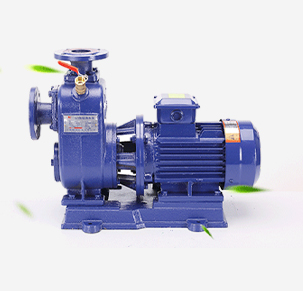Arabic
- Afrikaans
- Albanian
- Amharic
- Arabic
- Armenian
- Azerbaijani
- Basque
- Belarusian
- Bengali
- Bosnian
- Bulgarian
- Catalan
- Cebuano
- Corsican
- Croatian
- Czech
- Danish
- Dutch
- English
- Esperanto
- Estonian
- Finnish
- French
- Frisian
- Galician
- Georgian
- German
- Greek
- Gujarati
- Haitian Creole
- hausa
- hawaiian
- Hebrew
- Hindi
- Miao
- Hungarian
- Icelandic
- igbo
- Indonesian
- irish
- Italian
- Japanese
- Javanese
- Kannada
- kazakh
- Khmer
- Rwandese
- Korean
- Kurdish
- Kyrgyz
- Lao
- Latin
- Latvian
- Lithuanian
- Luxembourgish
- Macedonian
- Malgashi
- Malay
- Malayalam
- Maltese
- Maori
- Marathi
- Mongolian
- Myanmar
- Nepali
- Norwegian
- Norwegian
- Occitan
- Pashto
- Persian
- Polish
- Portuguese
- Punjabi
- Romanian
- Russian
- Samoan
- Scottish Gaelic
- Serbian
- Sesotho
- Shona
- Sindhi
- Sinhala
- Slovak
- Slovenian
- Somali
- Spanish
- Sundanese
- Swahili
- Swedish
- Tagalog
- Tajik
- Tamil
- Tatar
- Telugu
- Thai
- Turkish
- Turkmen
- Ukrainian
- Urdu
- Uighur
- Uzbek
- Vietnamese
- Welsh
- Bantu
- Yiddish
- Yoruba
- Zulu
Telephone: +86 13120555503
Email: frank@cypump.com
نوفمبر . 24, 2024 17:35 Back to list
sewage effluent pump
The Importance of Sewage Effluent Pumps in Wastewater Management
Sewage effluent pumps play a critical role in the effective management and treatment of wastewater, ensuring that sewage is properly processed before being released back into the environment. With the rising population and urbanization, wastewater management has become a pressing issue for municipalities around the world. As a result, understanding the function and significance of sewage effluent pumps is vital for sustainable urban planning and environmental protection.
What is a Sewage Effluent Pump?
A sewage effluent pump is a type of pump specifically designed to handle and transport wastewater, sludge, or effluent that has undergone preliminary treatment. These pumps are used to move liquid waste from lower to higher elevation points, such as from a holding tank to a treatment facility, or from a septic system to a disposal field. They are typically submersible, meaning they can operate while submerged in the effluent, making them particularly efficient in managing sewage from residential and industrial sources.
How Sewage Effluent Pumps Work
Sewage effluent pumps are equipped with impellers that create suction to draw wastewater into the pump and propel it through a discharge pipe. These pumps are built to handle solids and should have features like a macerator or grinder to break down larger particles in the sewage, preventing clogs and ensuring smooth operation. Depending on the system’s requirements, sewage effluent pumps can be activated by floats or pressure switches, allowing for automatic operation.
Applications of Sewage Effluent Pumps
These pumps are used in various applications, including
1. Residential Homes In areas without access to gravity-fed sewer systems, sewage effluent pumps help homeowners manage their wastewater effectively, directing it towards city sewage systems or treatment facilities.
sewage effluent pump

2. Industrial Facilities Factories and plants often produce wastewater that needs to be treated before disposal. Sewage effluent pumps ensure that this water is transported safely, thereby minimizing environmental impacts.
3. Municipal Wastewater Treatment Plants Municipalities utilize sewage effluent pumps to manage the large volumes of wastewater that need treatment. These systems are crucial in maintaining public health and preventing contamination of natural water sources.
4. Septic Systems In rural settings, septic systems may require effluent pumps to move treated wastewater from the septic tank to drain fields. This is essential for protecting groundwater and local ecosystems.
Environmental Impact
Effective sewage management is essential for environmental protection. Contaminated wastewater can lead to severe pollution of water bodies if not treated properly. Sewage effluent pumps are an integral part of this process, making it possible to treat wastewater efficiently, thus reducing the risk of pollutants entering rivers, lakes, and oceans. By ensuring that sewage is treated before discharge, these pumps help maintain healthy ecosystems and protect public health.
Challenges and Solutions
While sewage effluent pumps are crucial, they are not without challenges. Issues such as clogging, mechanical failures, and power outages can lead to system malfunctions and, consequently, environmental disasters. Regular maintenance, prompt repairs, and the use of high-quality, reliable pumps can mitigate these risks. Municipalities and industries need to invest in robust systems and training to ensure that personnel are equipped to handle the pumps effectively.
Conclusion
Sewage effluent pumps are indispensable in the realm of wastewater management. Their ability to facilitate the effective transportation and treatment of sewage not only supports public health but also obliterates potential environmental threats. As urban areas continue to grow and climate challenges become more pronounced, the role of these pumps will only amplify. It is essential for communities to approach wastewater management with forward-thinking strategies, ensuring that sewage effluent pumps remain a cornerstone of sustainable development and environmental stewardship. Investing in advanced technology and maintaining existing systems will help safeguard our ecosystems for future generations, affirming the critical nature of these unsung heroes in our waste management systems.
-
Custom Drilling Mud and Slurry Pump Supplier - High Efficiency, Tailored Solutions
NewsJun.10,2025
-
Supply Vertical Submersible Sewage Pump High-Efficiency WQ/QW Pumps Supplier
NewsJun.10,2025
-
Premium Sewage Ejection System & Pumps Efficient Waste Removal
NewsJun.09,2025
-
Premium Wholesale Slurry Pump Impellers Durable & Efficient Slurry Handling
NewsJun.09,2025
-
Top Sewage Pump Companies Durable Industrial Solutions for Efficiency
NewsJun.09,2025
-
Heavy Duty Slurry Pumps - OEM High Performance & Bulk Wholesale
NewsJun.09,2025










